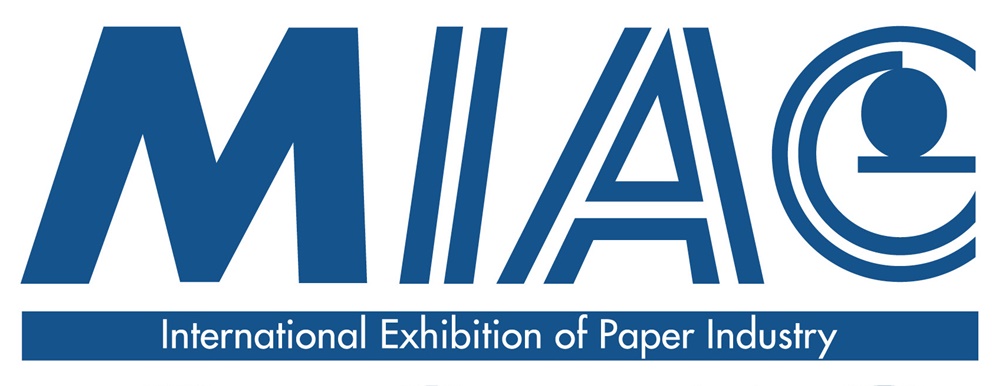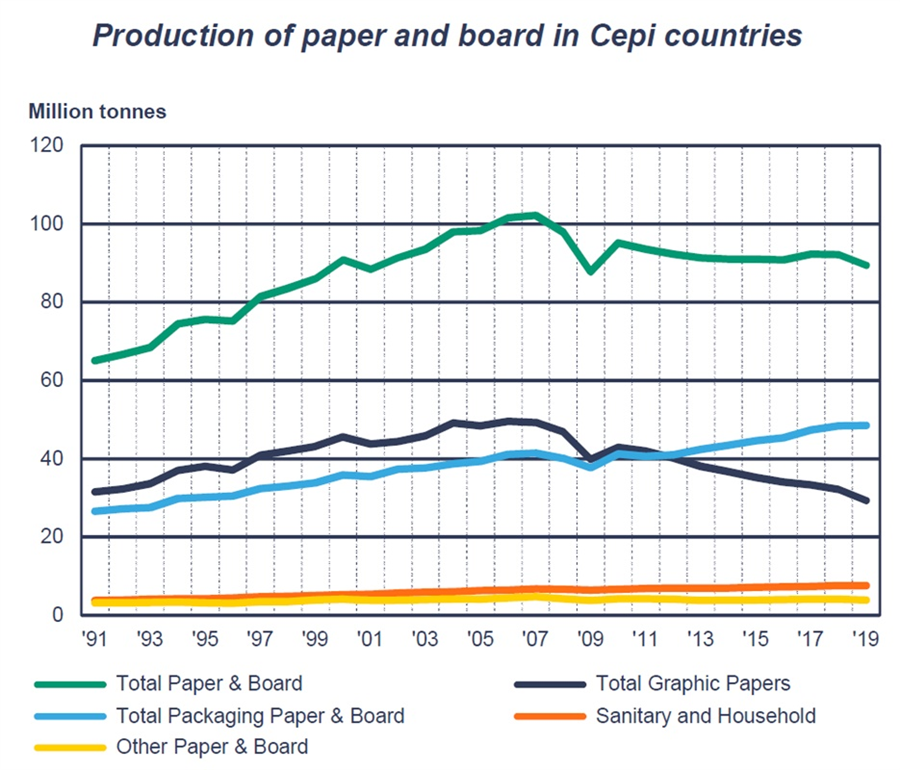NEWS
European paper and board production follows the EU economy downward trend in 2019
According to preliminary figures, the European paper and board production has decreased by 3.0% in 2019 (European Paper Industry countries covered by the data: Austria, Belgium, Czech Republic, Finland, France, Germany, Hungary, Italy, Netherlands, Norway, Poland, Portugal, Romania, Slovakia, Slovenia, Spain, Sweden, and the United Kingdom), compared to the previous year.
2019 saw new capacities coming on stream, and upgrades of existing ones, but closures and lower production operating rates dragged down paper and board production. This downward trend was observed in all the top paper and board producing countries.
The slowing down of the EU’s economy in 2019 - from 1.9% in 2018 to 1.1% in 2019 (Source: European Commission), combined with global instability and trade tensions, impacted the European paper and board consumption, which recorded a 4% decline.
Domestic paper and board deliveries in Europe went down by 2.6% compared to 2018, while imports declined by 3.9% according to preliminary figures. Paper and board exports grew by close to 0.9%.
Contrary to previous years, packaging paper and board production remain relatively stable in 2019, unable to offset the on-going decline of graphic grades.
The overall production of graphic grades – newsprint and printing & writing papers - fell by more than 8.0% in 2019.
The production of sanitary and household papers registered a limited growth, +1.0%.
Total pulp production (integrated pulp, plus market pulp) increased by 0.8%. It was overperformed by market pulp production which jumped by 6.1%, as a result of recent massive investments in new capacities. This growth in production is driven by the export market demand. Similarly, exports of market pulp jumped by close to 40% in 2019 according to Eurostat.
To respond to this higher demand, the European paper industry has invested significantly to increase the production of market pulp and further implement the bio-refinery concept. These investments combine higher efficiency in raw material use and the production of highly innovative bio-based products, besides market pulp.
Pulp produced in Europe comes from sustainably managed forests, for example through programs like PEFC (Programme for Endorsement of Forest Certification) and FSC (Forest Stewardship Council), and is increasingly used in various value chains. The level of certified wood, chips and sawmilling by-products was 74% in 2018.







